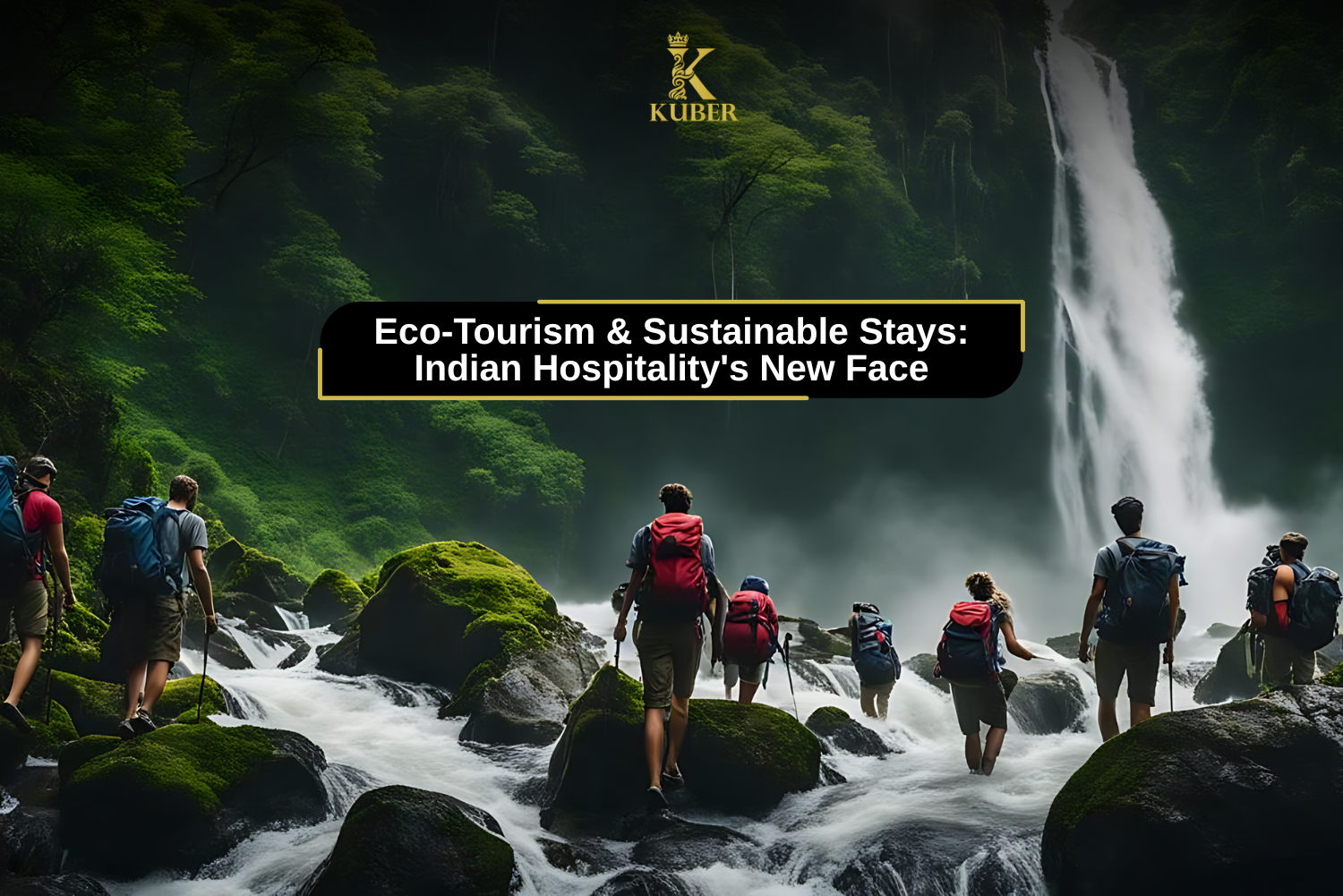An increasing trend is overhauling the hospitality industry in India. With increasingly more tourists looking for authentic, nature-focused experiences, mass tourism is no longer the priority. Eco-tourism and sustainable stays are leading the way today as hotels and tourist centres all over India reimagine the way they function. It is not a fad but a well-deserved reaction to environmental issues, cultural homogenization, and over-tourism of the ‘places to be.’
Eco-Tourism: Sympathy with Nature
Indian eco-tourism is not upmarket traveling, but experience traveling. Travelers no longer want to travel for the sake of it, but with a purpose — to explore the world, live the local cultures, and give the world a lighter footprint.
Why eco-tourism is booming in India:
Nature rather than novelty: Fewer individuals are opting for forest treks, organic farm homestays, and bird watching compared to theme parks or shopping malls.
Community-based experience: Eco-tourism promotes the involvement of locals in an experiential manner, so that visitors can experience the village style, tribal culture, and local cuisine.
Friendly towards wildlife ventures: National parks are practicing conserving-first tourism with a limited number of tourists and education guides.
Sikkim, Kerala, and Uttarakhand are some of the most prominent states that are bringing in the organised eco-tourism experience that is sustainable for the land and the lives of the dependent people.
Sustainable Stays: India’s Hospitality Switches Over
The hospitality industry in India is finally realizing that sustainability is not a constraint, but an intelligent business choice. Hotels and aviation facilities from all over the country are embracing green architecture, alternative energy and socially conscious waste management without compromising on the quality of services.
The key elements of sustainable stays:
- Locally sourced materials such as bamboo are integrated into the landscape.
- Zero single-use plastic policies that cut out bottles and packaging waste.
- Organic menu items are grown on-site or locally purchased from regional farms.
- Rainwater collection and greywater systems to decrease water consumption.
- Use of local employees trained in green practices.
The hospitality industry in India is now developing spaces that enable such principles. From environmentally friendly buildings to organic dining ideas, our philosophy is based on long-term sustainable strategies. We envision comfort never being achieved at the expense of the environment.
What the Government is Doing
Some Indian states are promoting sustainable tourism by way of eco-tourism, local guides, and green infrastructure. Green destinations are promoted by the Ministry of Tourism and there is a promotion of homestays and village tourism schemes now.
Examples are:
- Kerala’s Responsible Tourism Mission, with fair remuneration, plastic-free tourism, and locally managed activity.
- Madhya Pradesh’s eco-tourism sites, where the number of vehicles is limited and forest guards serve as guides.
- Nagaland and Meghalaya’s community-tourism designs that generate revenue for resident communities without destroying the local ecosystem.
The role of the state and central agencies is vital to scale up sustainable hospitality from niche markets.
The Remaining Challenges
Transition is promising, but India’s eco-tourism and sustainable hospitality do have some real issues:
- Greenwashing: Certain establishments present themselves as green without really doing anything different.
- Infrastructural deficit: Even rural or forest destinations have no proper roads, sanitation, or internet.
- Low tourist awareness: Tourists do not know how to check whether a hotel is sustainable.
- Training gaps: Locals who work in remote areas need further training in sustainability procedures.
These are challenges best hospitality companies in India are actively addressing. Our solutions are led by professional environmental experts and engage the local community from the outset to deliver real impact.
How Travellers Can Help
The tourists are equally crucial in the new hospitality structure. Small actions can make a huge difference.
What can travellers do:
- Choose certified eco-stays that do not shy away from divulging their green policies.
- Carry reusable accessories like bottles and cloth bags.
- Do not support packaged holidays that lead to wildlife exploitation or over tourism
- Respect the customs and traditions of the host nation.
- Purchase local and handmade souvenirs from artisans.
Through word of mouth, the tourists themselves will be responsible tourism ambassadors, promoting the operators and hotels to practice better ways.
The Way Forward
Sustainable tourism is not a trend. Sustainable tourism is the future of the Indian tourism industry. With travellers getting smarter and governments allowing it, hospitality businesses should take the onus of doing business with purpose. Eco-tourism and sustainable hotels provide a more profound connection, a more enriching memory, and a sustainable world.
The purpose of the best hospitality companies in India is to drive the transformation. Combining sustainability in architecture, environmentally friendly operations, and human-centric design, our vision is to create generation-long hospitality infrastructure that is for everybody involved, from local communities to international visitors. The new Indian hospitality is green, rooted, and full of possibility.








